White students are now the minority in U.S. public schools, but they still have a better chance of graduating and completing college compared to their immigrant and ethnic minority peer learners. We have to improve parent engagement and equitable family engagement in K-12 education if we want to reduce this achievement gap.
Let’s assume most parents want to be involved, informed, and engaged with their child’s education. When attempting to maximize and improve parent engagement, educators must take into account concepts like inclusivity, equity, and diversity. Parents of English learners are often prevented from engaging effectively due to language and cultural barriers — as well as barriers to resources. Many K-12 charter school districts serve large populations of minorities and English learners.
Educational leaders can promote inclusivity by supporting learning environments that help parents overcome these barriers — and have more opportunities to meaningfully engage with their child’s teachers.
Cultural and Language Barriers
Language barriers can obviously decrease parental engagement and prevent inclusive parent-teacher relationships. In an article posted in the peer-reviewed journal, Multicultural Education, Christopher T. Vang writes that “Schools encourage parents to be involved in their children’s education, but many bilingual parents fear being misunderstood and therefore do not express their concerns if they have any.” This issue is compounded if bilingual parents have students that are struggling in English learner classes. Without engaging with teachers, parents may only discover the academic challenges of their children when it’s too late.
It’s also important to remember that for some parents, education has a different cultural significance than it does for many Americans. “Bilingual parents come from cultures in which teachers receive the same respect as civic leaders and clergymen […] They do not know the difference between substitute teachers and regular classroom teachers, nor can they tell when teachers have proper credentials,” Vang writes. He goes on to say that “In some cultures, receiving good grades means everything to students, their families, and their parents.” While this may be a generalization, it is important to be aware of the divergent ways different cultures can view the role of the teacher and the significance of grades.
Resource Barriers
While much progress has been made over the past decades, racial disparities still exist when you look at high school graduation rates. Intervention can help bring minority and immigrant graduate rates up to the same level as white students. Closing the barriers that exist and promoting a learning environment where minority and immigrant parents are able to engage and form inclusive relationships with the teachers educating their children will be an important step.
Research also shows a clear rift between parents and teachers regarding their expectations for minority student success. According to a 2014 survey, 10th-grade teachers believed that African-American students were 47% less likely to graduate college compared to white students. That number was even lower for Hispanic students. However, African-American and Latino parents believe that schools are not doing enough to educate low-income students.
With improved leadership, program support, and equitable family-teacher relationships, we can help close the education gap.
Taking Action
Nonprofits and educational institutions can take decisive action to improve parent engagement. More than 75% of educators reported an increase in parent engagement during the pandemic. This has mostly been attributed to the accelerated use of educational technology that facilitates better communication. Funded by a $2-million grant, researchers from the University of Missouri are creating training programs that will help elementary teachers communicate even more effectively with families.
A new parent/student advocacy organization called Alianza Latina aims to increase Latino parent engagement in California’s Rialto Unified School District. These are inspiring examples for educational leaders around the nation. In 2019, Stronger Consulting worked with one of the most diverse and the largest public charter school district in Los Angeles on program development and curriculum design. We worked closely with teachers and administration to implement curriculum and best practices targeted to not only improve graduation rates — but college admission success.
Tips for Boosting Parent Engagement
Here are some general tips for boosting parent engagement:
- Use a variety of communication methods
- Don’t rely on students to translate
- Enlist the help of an interpreter
- Make sure parents understand key educational terms
- Be wary of cultural differences
- Allow parents to voice their expectations
- Give parents a chance to ask questions
- Seek guidance/ expert help outside of the school
- Proactive parental outreach by all school stakeholders






